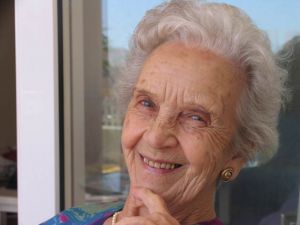Alzheimer's Australia today released 15 bilingual Dementia Risk Reduction Tip Sheets through the national dementia risk reduction program, Mind your Mind.
"The Tip Sheets will help community members identify what they can do to reduce their risk of developing dementia," Alzheimer's Australia's National Risk Reduction Manager, Suha Ali said.
All Australians, especially those aged 40 and above, are encouraged by the program to lead a brain healthy lifestyle that is, being physically, mentally and socially active, eating healthily, avoiding smoking and excessive alcohol consumption, managing blood pressure, cholesterol, blood sugar and weight, as well as protecting against head injury.
The Dementia Risk Reduction Tip Sheets have been developed through community consultation in Arabic, Assyrian, Chinese, Croatian, Finnish, Greek, Italian, Lao, Macedonian, Romanian, Russian, Serbian, Spanish, Turkish and Vietnamese.
"These bilingual Tip Sheets will help to communicate essential health messages to many different people for whom English is not their preferred language," Chairperson of Ethnic Communities' Council Victoria, Sam Afra said.
"They will also be a great assistance to sons and daughters, other family members or friends who may not always be fluent in a person's native language."
"Research suggests that eating well and being physically active, maintaining an active social life and keeping mentally stimulated are some of the best things you can do to try to reduce your risk of developing dementia," Ali said.
While there is, as yet, no cure for this deadly disease, scientific research shows it may be possible to reduce your risk of developing dementia, or delay the onset by taking action in your middle years.
"Already there are an estimated 269,000 Australians living with dementia. The more people we can reach with our message the better informed Australians will be to make lifestyle choices now that may reduce the risk of developing dementia later in life," Ali said.
Alzheimer's Australia's national risk reduction program, Mind your Mind, is designed to help reduce the risk of developing dementia and promotes a 'brain healthy lifestyle.
"Following the Mind your Mind program and being brain healthy involves mental and physical activity, healthy eating, being social, getting regular GP check-ups, and generally looking after yourself," Ali said.
Here are some of the tips included in the Tip Sheets to help reduce your risk of developing dementia by following the Mind your Mind signposts:
- Keep your brain active - Challenge your brain with new activities, for example, learn a language, do new types of puzzles or crosswords, read or enrol in a course;
- Eat healthily - Eat plenty of fruit and vegetables, legumes, fish, lean meats, wholegrain breads and cereals, reduced-fat dairy products, oils such as olive, sunflower, canola, soy, safflower and flaxseed;
- Be physically active - Be physically active in ways you enjoy. Walk, play sport, go to the gym, dance, do yoga, pilates, tai chi or go swimming. ;
- Manage your blood pressure, cholesterol, blood sugar and weight - Visit your doctor to have regular check-ups and follow their advice;
- Participate in social activities - Catch up with family and friends, join a club or group, volunteer, go to events;
- Don't smoke and only drink alcohol in moderation - Smokers can seek advice from Quitline on 131 848. If you drink alcohol, do so in moderation.; and
- Protect your head from injury - Take care not to fall, take care as a pedestrian, wear a seat belt and wear a helmet when riding or for certain sports.
Following the Mind your Mind program does not guarantee that you won't develop dementia, but research shows it may help reduce your risk and may even delay the onset of dementia.
For more information about Alzheimer's Australia's Mind your Mind program and to download the bilingual Tip Sheets visit www.mindyourmind.org.au or call the National Dementia Helpline on 1800 100 500 or the Telephone Interpreting Service on 131 450.




-160x160-state_article-rel-cat.png)













